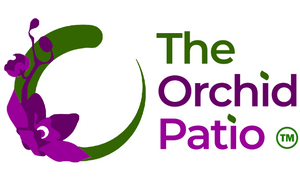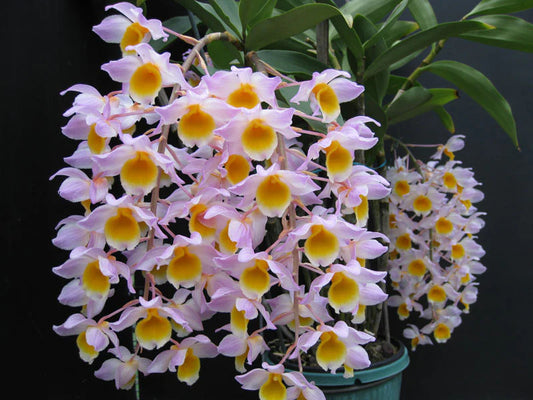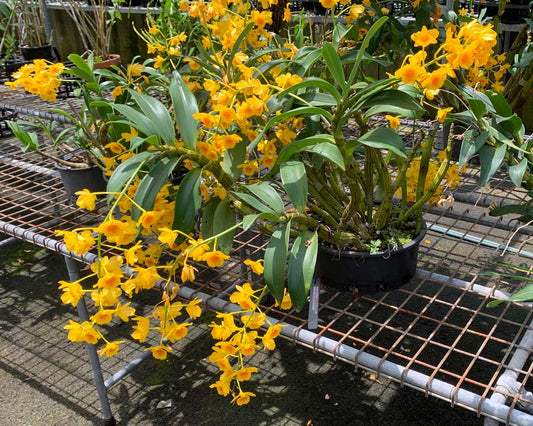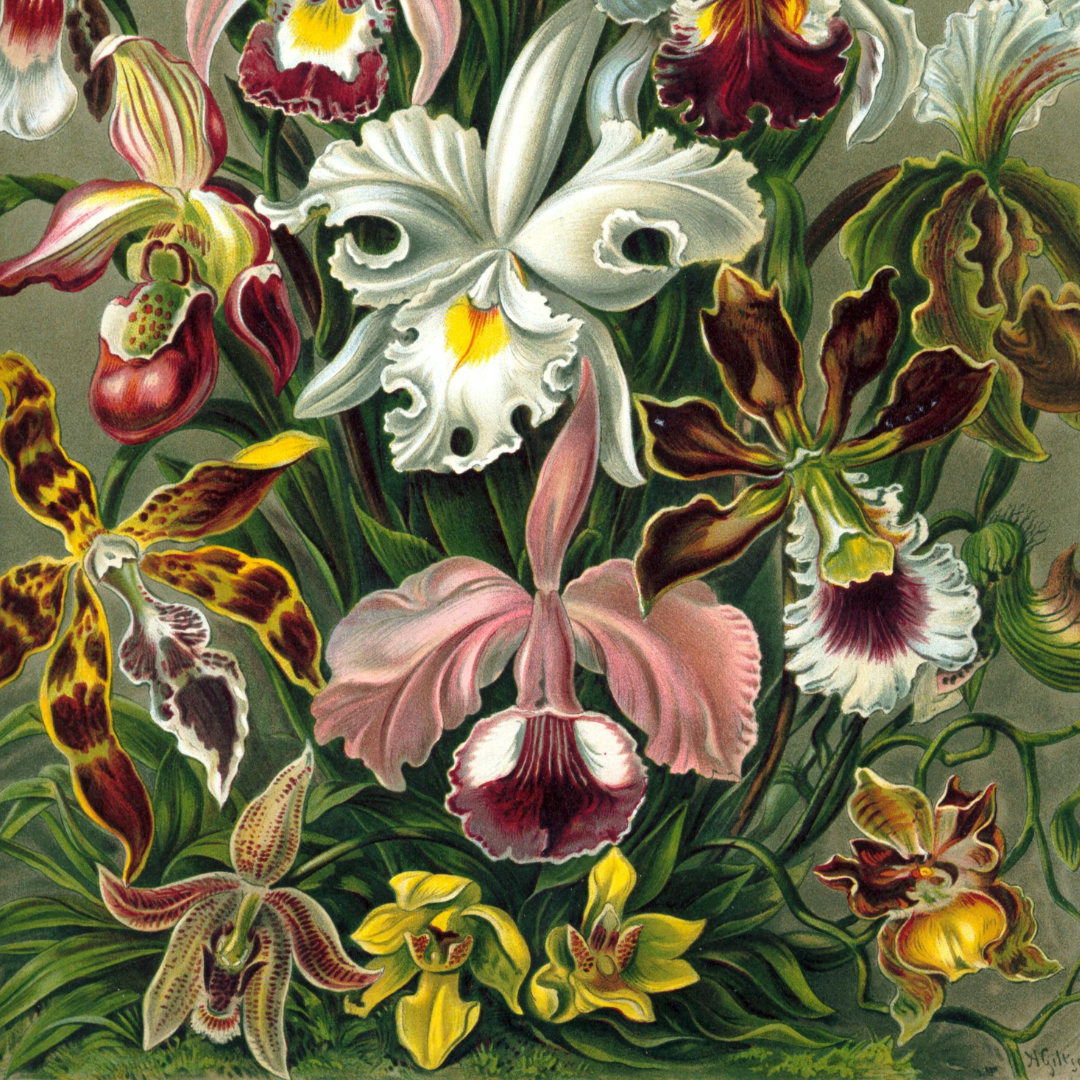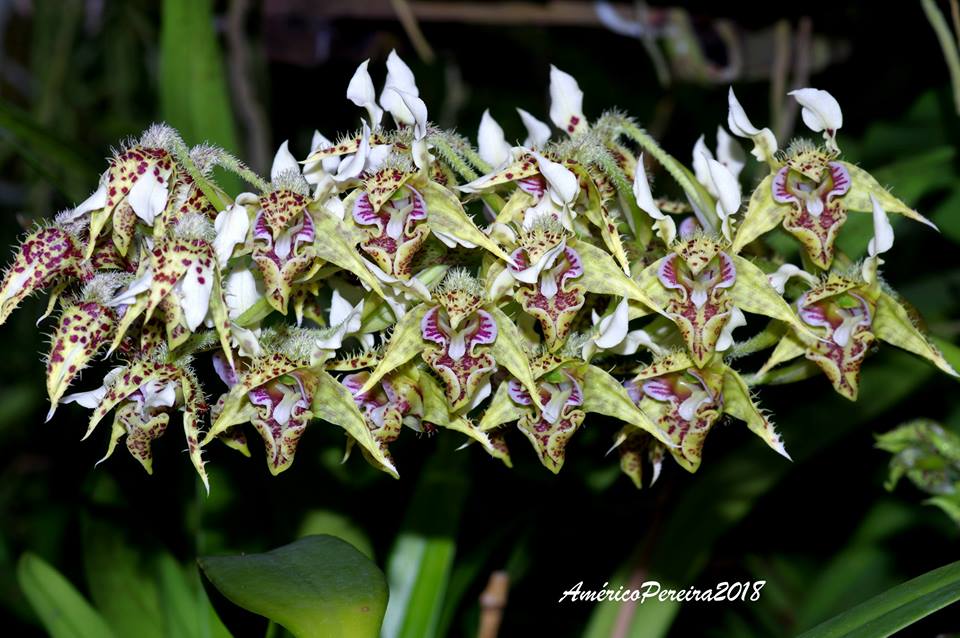
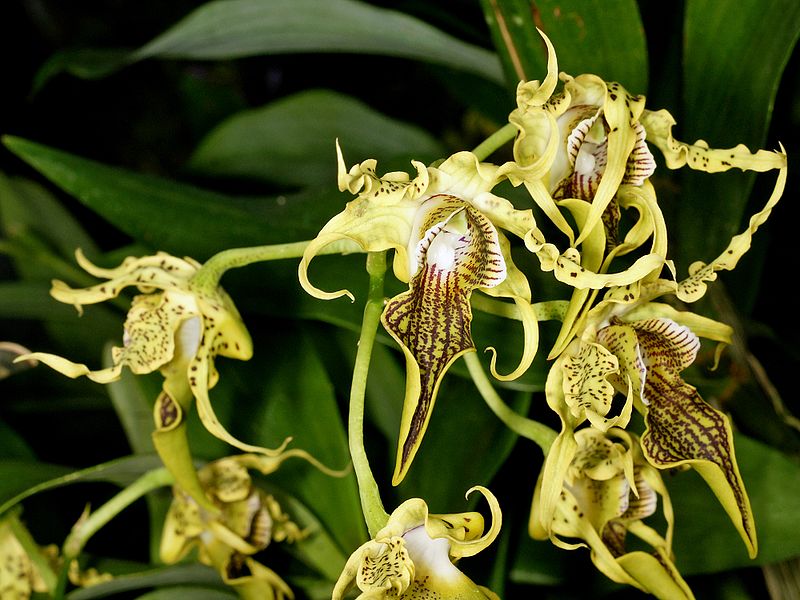
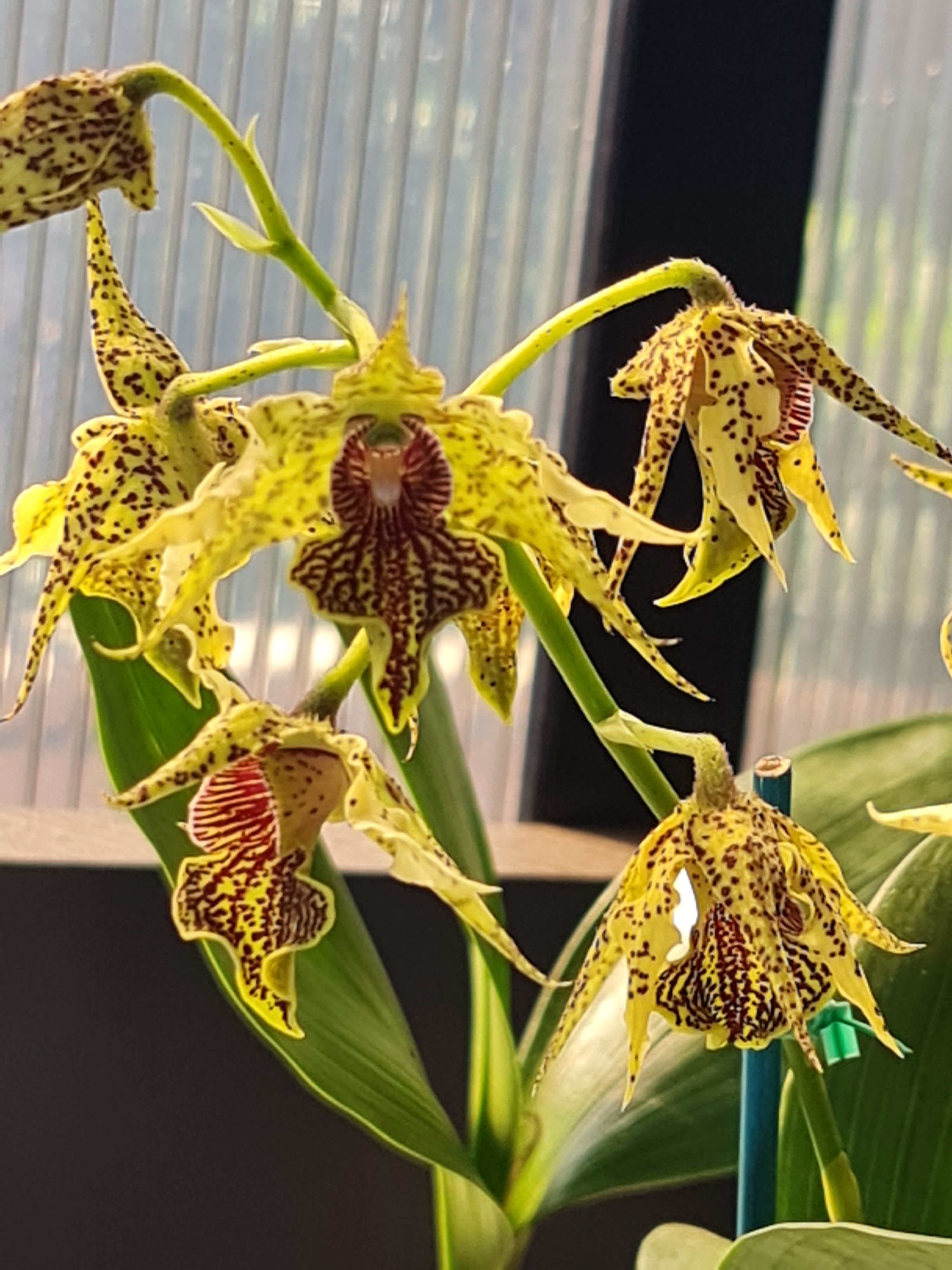
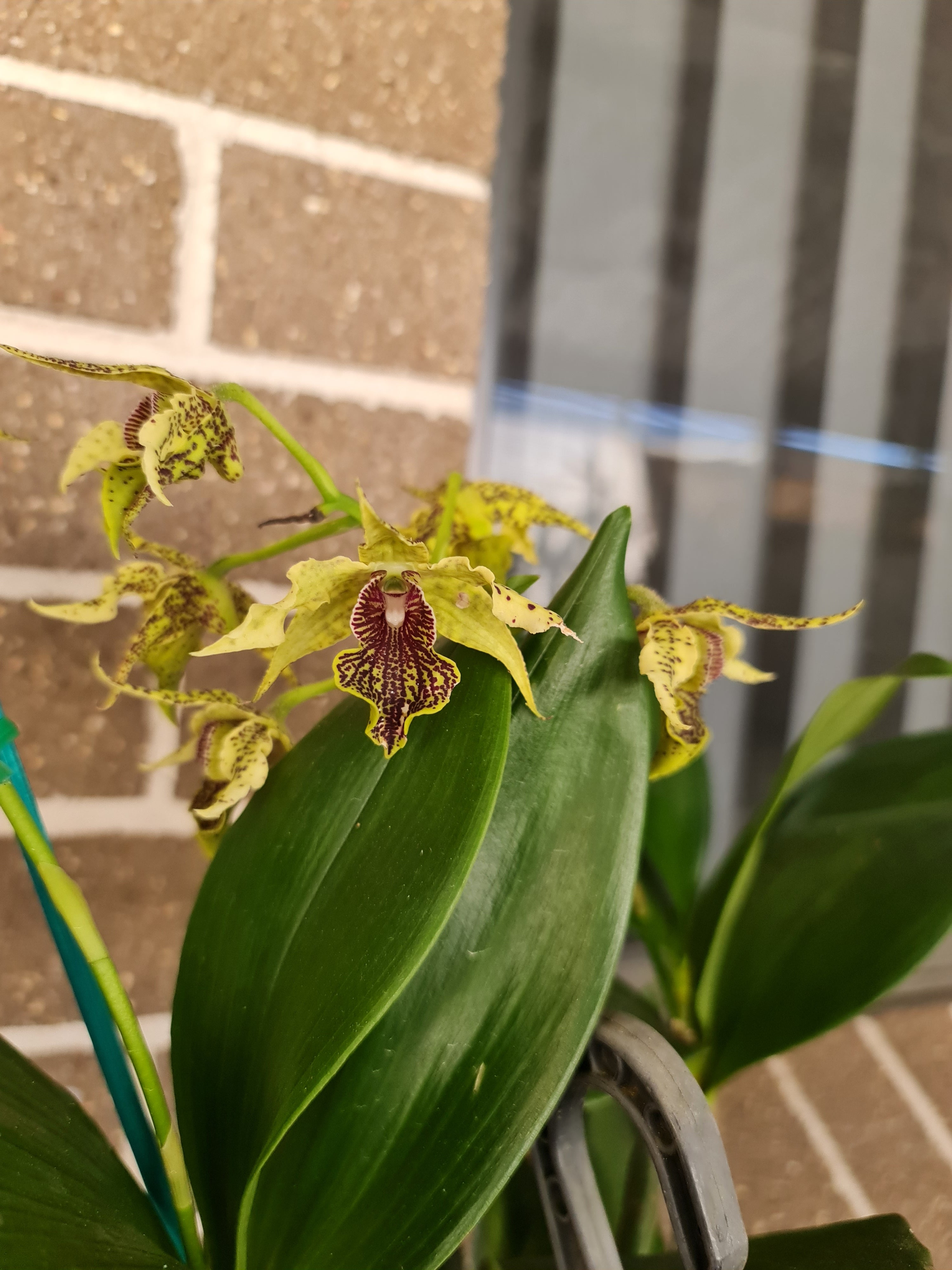
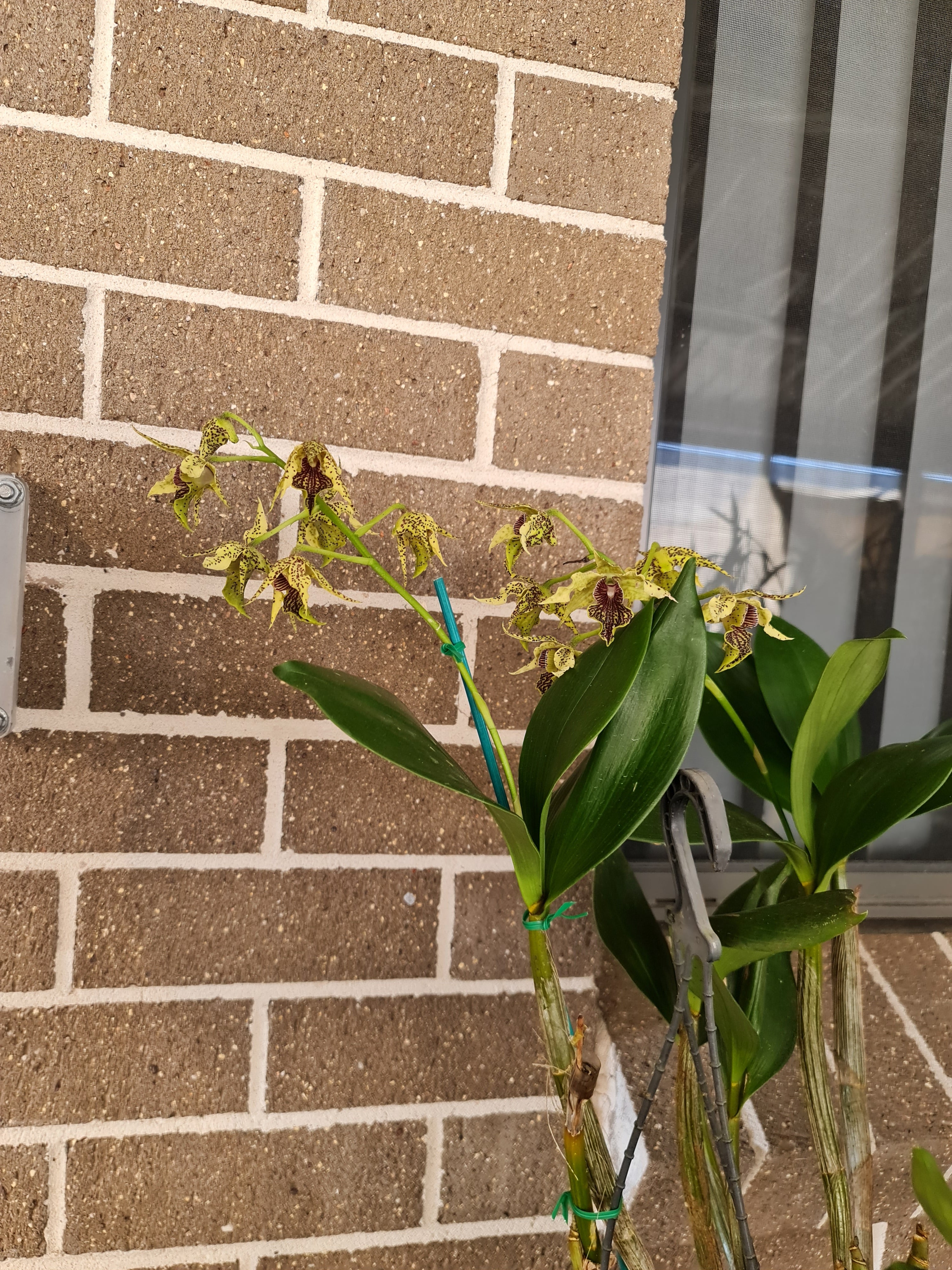
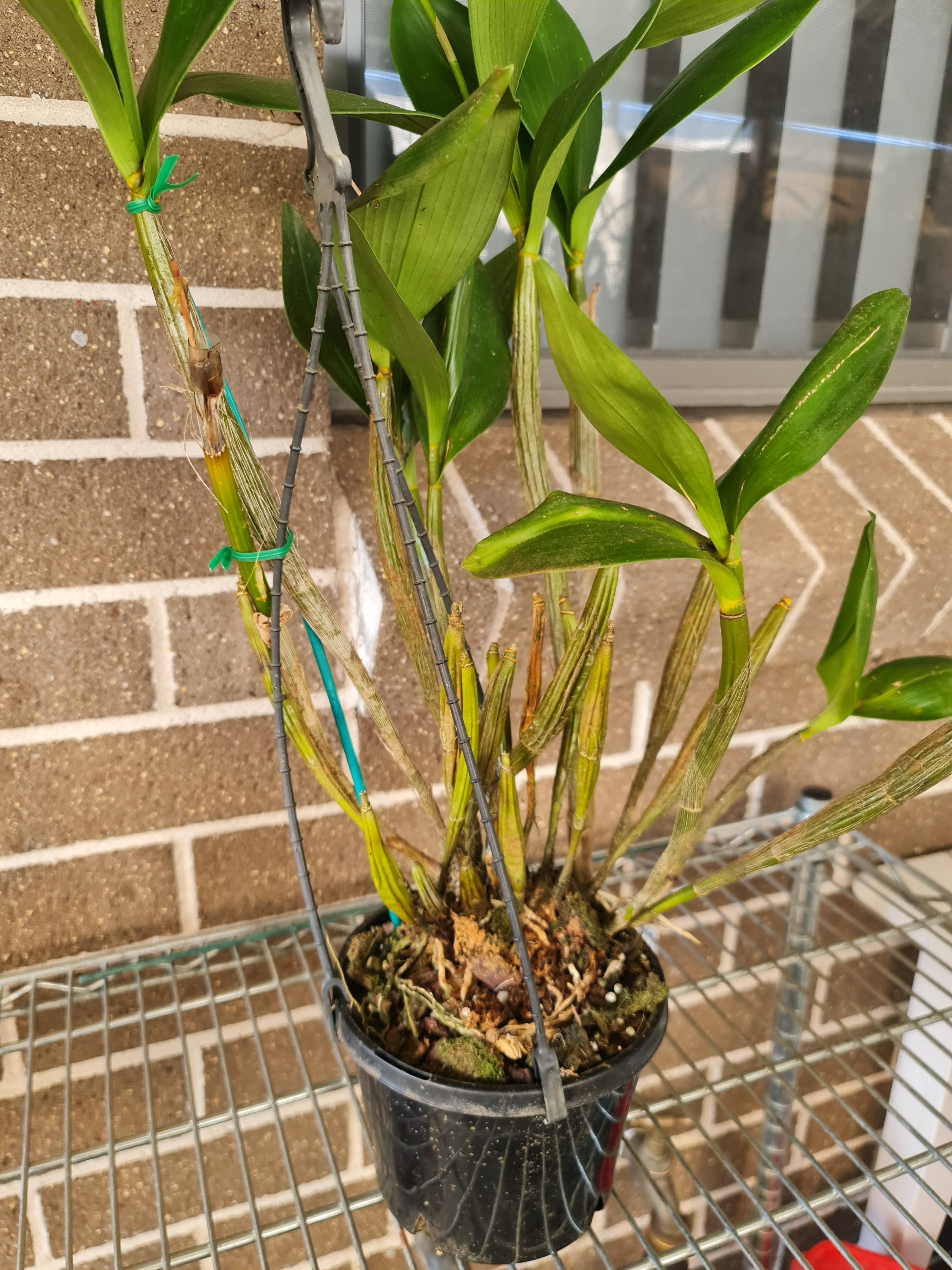
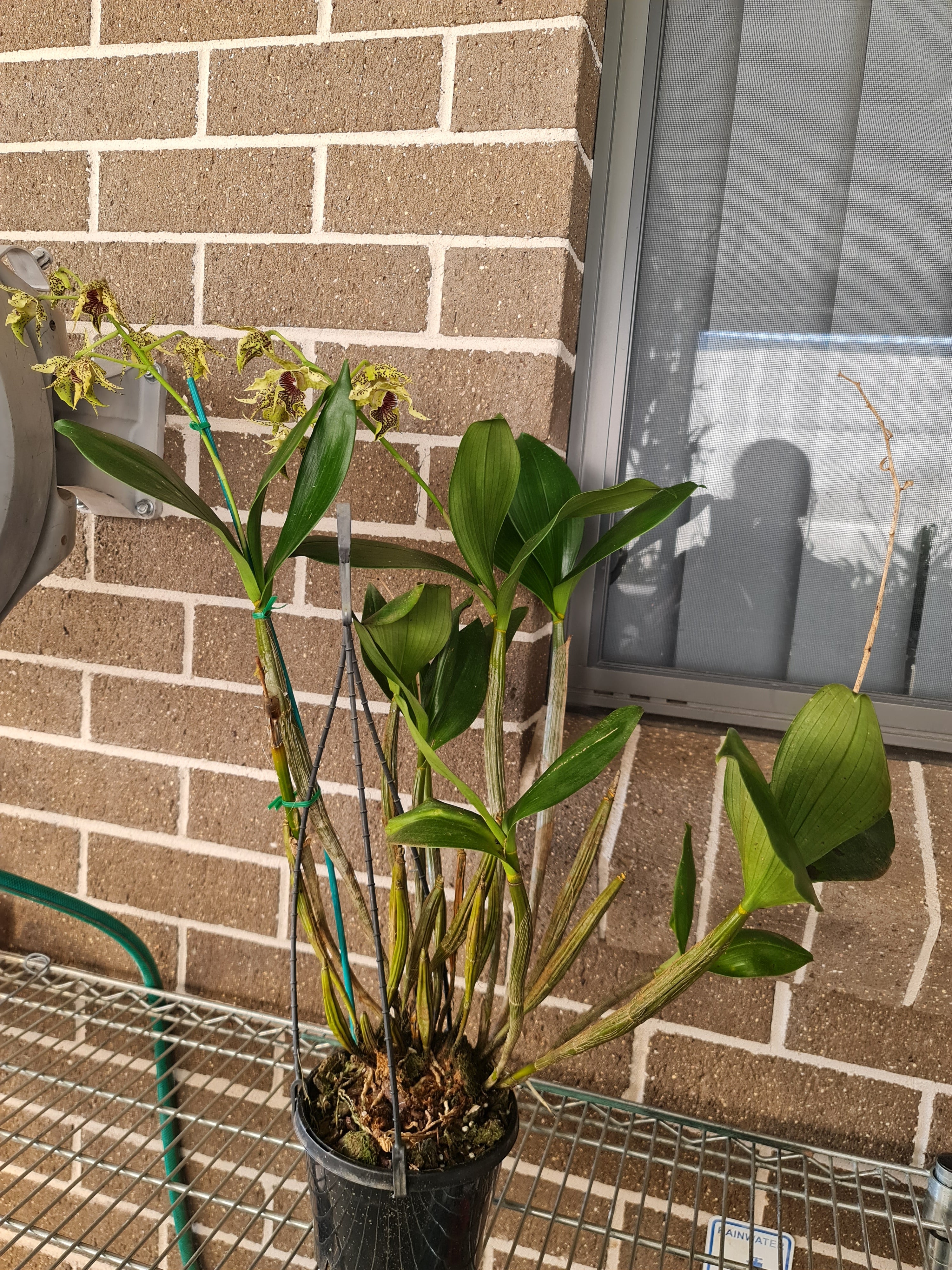
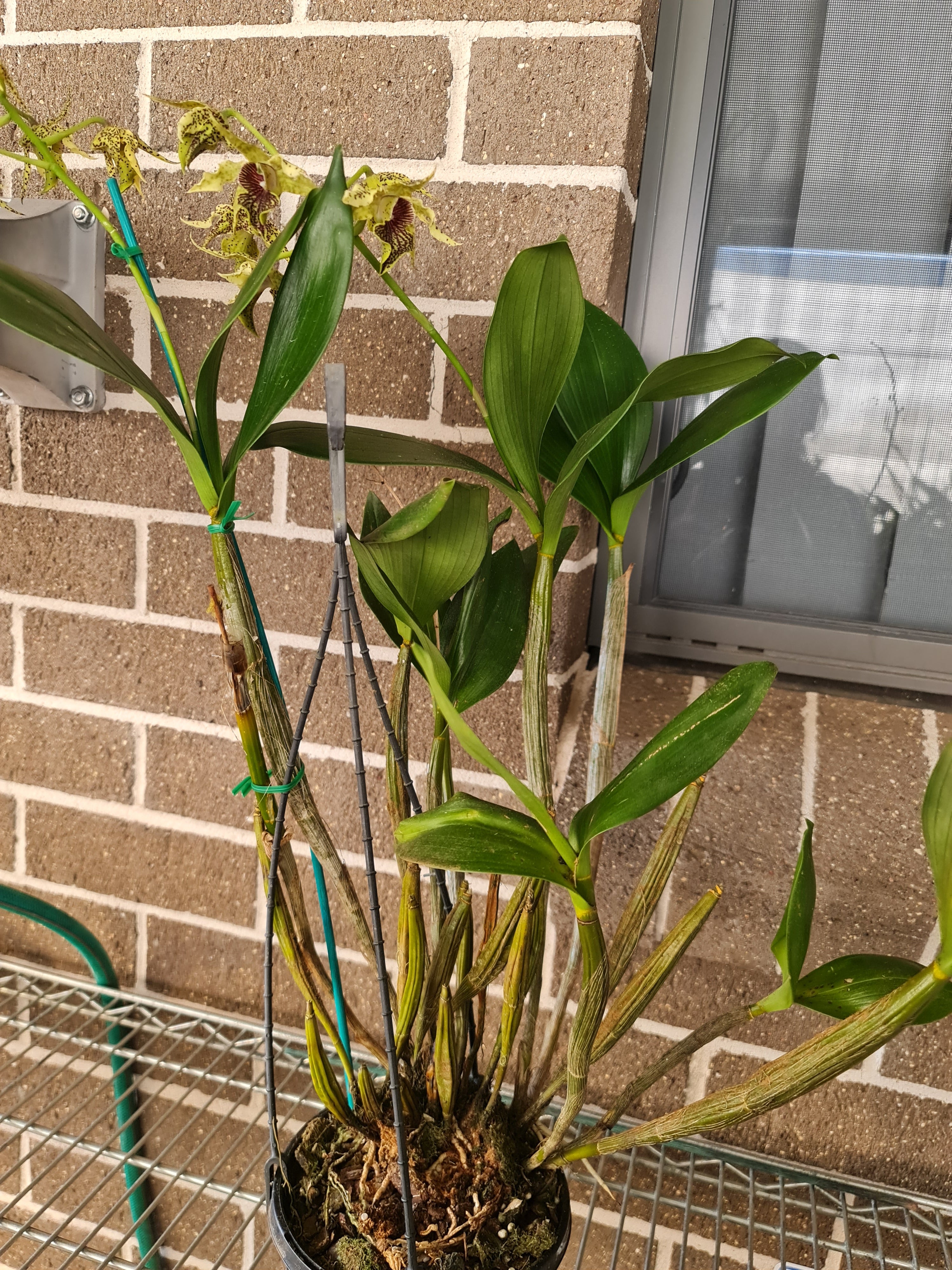
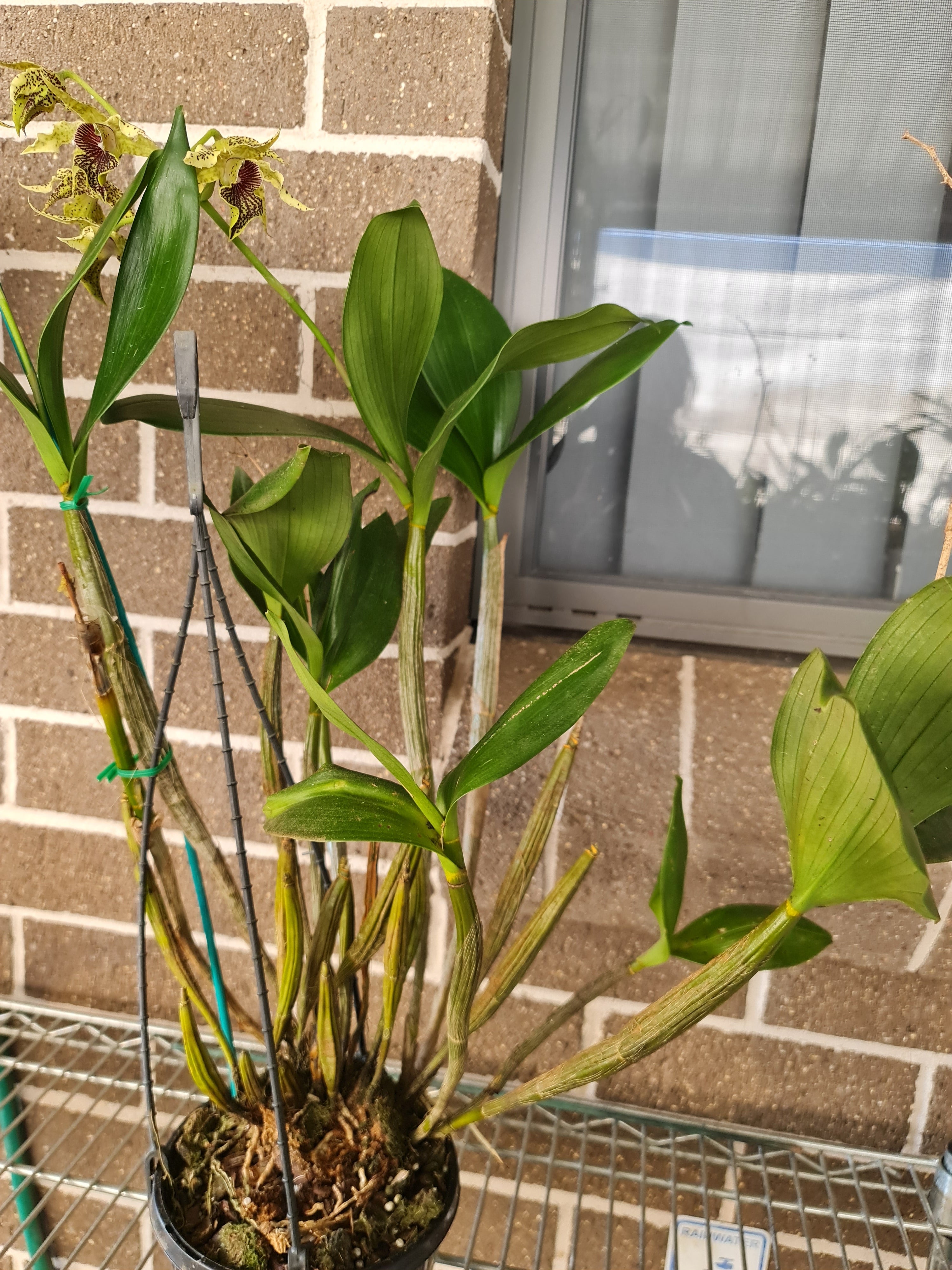
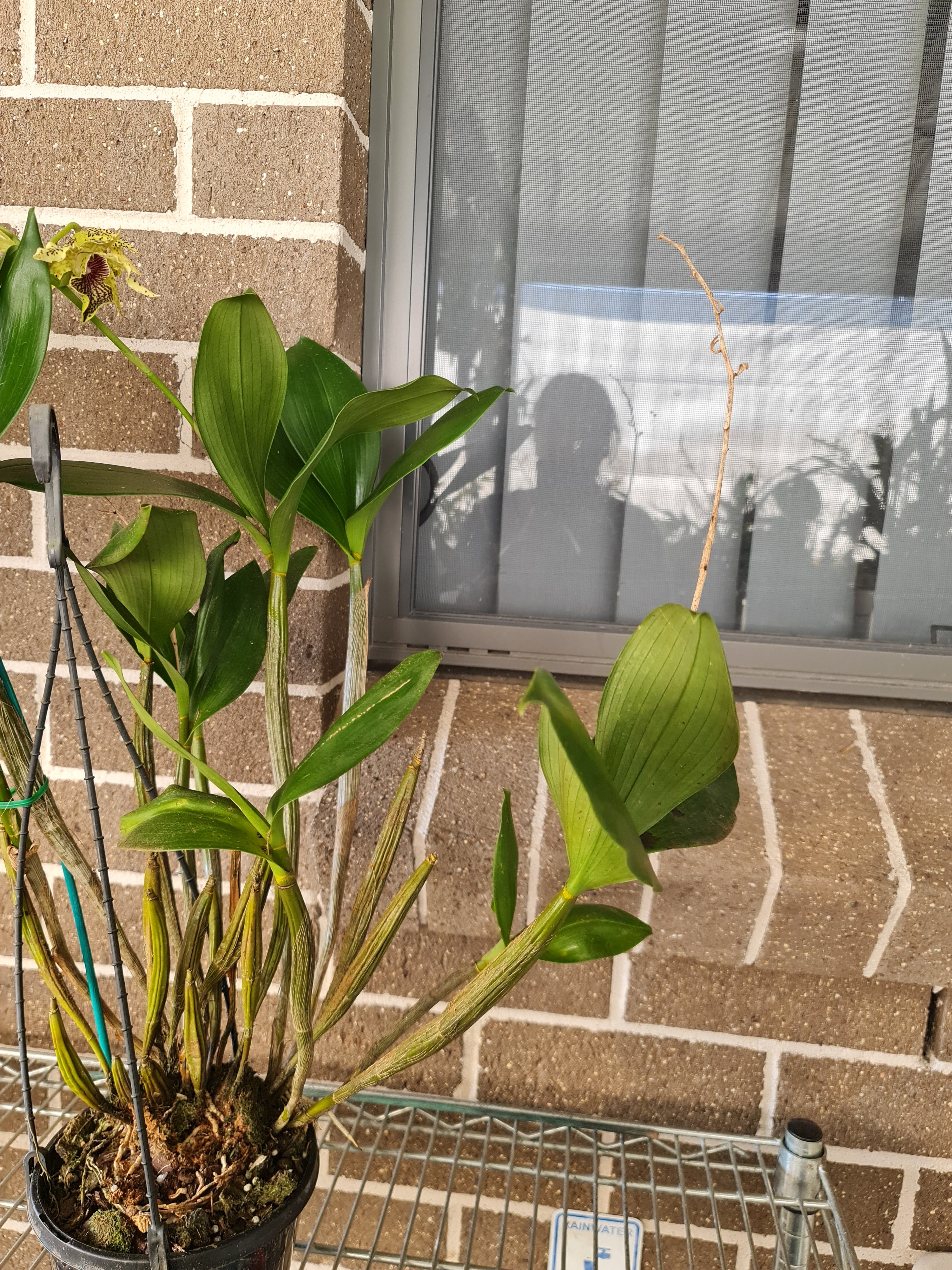
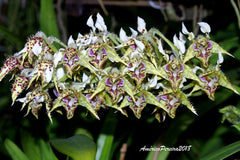
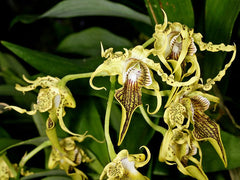
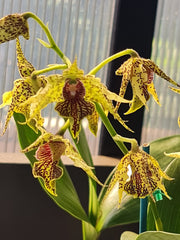
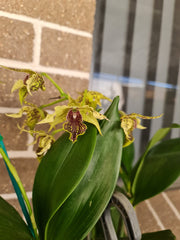
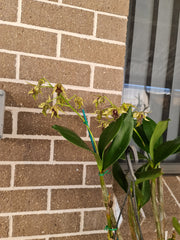
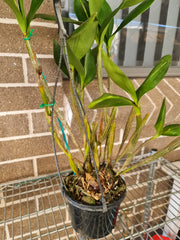
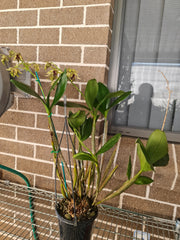
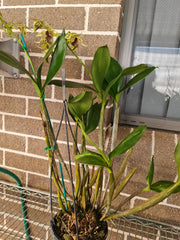
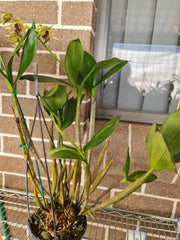
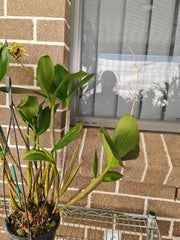
Description
xDendrobium alexandrae is native to Northeastern Papua New Guinea, in the District of Morobe. The reference plant was found in the Valley of Waria near Gobi (Gobe), at an altitude of 900-1100 m. It grew in cool, shady conditions on trees covered with moss in a damp forest. This name is a synonym of Dendrobium polysema. Dendrobium pulchrum is an orchid species identified by Schltr. in 1912. A widespread, medium to large sized, hot to cool growing species from Java, Lesser Sunda Islands, Moluccas, the Philippines, Sulawesi, New Guinea, Solomon Islands, Fiji, New Caledonia, Samoa, Santa Cruz, Vanuatu and the Caroline Islands that is usually epiphytic in hot coastal primary forest jungles to cool montane forests on tree trunks halfway up the bole from sea-level to 1700 meters in elevation. This species has ribbed, slightly flattened, slender basally and thicker in the upper 60% stems carrying 2 to 4, large, persistent leaves that are held near the apex. They bloom from spring until late summer on an erect, to 6 to 16 [15 to 40 cm] long, usually many [15 to 25] flowered raceme with heavy textured, color variable flowers and require even water and fertilizer year round. They have an axillary, apical, erect or curved inflorescence that arises from the leaf axils at the apex of the leafed canes with flowers that have a delicate fragrance and are long-lasting.
On offer the orchid is big size orchid which is not usually available all the time. The orchid is in flower now however may finish flowering by the time you purchase. (05.09.23) We will send the plant bareroot with standard postage.
Shipping & Return
xShipping
We ship orders to addresses in NSW, VIC, ACT, QLD, SA. We can ship orchid flasks to all states and territories in Australia. We do not provide international shipping. Note that we may be able to organise concierge service to ship plants to restricted states at an additional cost. Please contact us to find out if this an option available for you.
When you place an order, we will estimate shipping and delivery dates for you based on the availability of your items and the shipping options you choose. Depending on the shipping provider, shipping date estimates may appear on the shipping quotes page.
Please also note that the shipping rates for items we sell are weight-based. To reflect the policies of the shipping companies we use, all weights will be rounded up.
All orders are shipped on Monday and/or Tuesday to avoid the parcel from getting held in a depot on the weekend. All orders placed by 11:59PM FRIDAY will be dispatched on Monday and/or Tuesday, remaining orders will be dispatched the following week.
General Growing Tips & Tricks
xGeneral Growing Tips
| Light | The amount of light required by each orchid varies. This can be researched based on the species. However, as a general rule, never expose orchids to direct sunlight as this can burn the plant tissue. |
| Temperature | The temperature requirement varies based on whether the orchid is cool, warm or intermediate growing. However, most orchids grow comfortably in 18-22 degrees celsius. |
| Humidity | Most orchids prefer moderate to high humidity. Hence, the relative humidity should be maintained between 60 to 90 percent. |
| Air Circulation |
It is important that plenty or air circulation is provided to prevent diseases. |
| Diseases and Pests | Monitor orchids regularly for signs of disease and pests. If there is any evidence of disease or pests, treat with a suitable agent such as a systemic fungicide for fungal infections or a suitable insecticide for insects. |
| Nutrition | Orchids are slow-growing and require fertiliser to support growth. Ensure that you use a balanced orchid fertiliser regularly during the growth period to encourage faster development. |
| Dormancy |
Some orchid species such as catasetums and dendrobiums are deciduous, meaning they drop their leaves and rest in winter. Reduce watering and cease fertilising in this period. |
| Repotting | It is encouraged that you repot orchids only when the plant is outgrowing the pot. An orchid needs to be repotted when roots start growing outside of the pot vigorously and the pot swells or cracks. Only use a pot that is one size larger than the previous pot. Do not repot seedlings immediately upon receiving them as this can slow down growth and may cause transplant shock. When repotting, choose a pot with drainage holes so that water does not pool and cause root rot. |
If you have any questions or concerns about these growing tips, feel free to contact us. We love to help!
- Choosing a selection results in a full page refresh.
